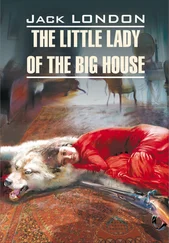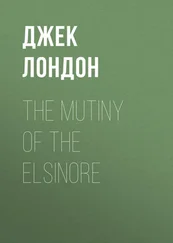Джек Лондон - The Little Lady of the Big House
Здесь есть возможность читать онлайн «Джек Лондон - The Little Lady of the Big House» — ознакомительный отрывок электронной книги совершенно бесплатно, а после прочтения отрывка купить полную версию. В некоторых случаях можно слушать аудио, скачать через торрент в формате fb2 и присутствует краткое содержание. Жанр: foreign_antique, foreign_prose, на английском языке. Описание произведения, (предисловие) а так же отзывы посетителей доступны на портале библиотеки ЛибКат.
- Название:The Little Lady of the Big House
- Автор:
- Жанр:
- Год:неизвестен
- ISBN:нет данных
- Рейтинг книги:5 / 5. Голосов: 1
-
Избранное:Добавить в избранное
- Отзывы:
-
Ваша оценка:
- 100
- 1
- 2
- 3
- 4
- 5
The Little Lady of the Big House: краткое содержание, описание и аннотация
Предлагаем к чтению аннотацию, описание, краткое содержание или предисловие (зависит от того, что написал сам автор книги «The Little Lady of the Big House»). Если вы не нашли необходимую информацию о книге — напишите в комментариях, мы постараемся отыскать её.
The Little Lady of the Big House — читать онлайн ознакомительный отрывок
Ниже представлен текст книги, разбитый по страницам. Система сохранения места последней прочитанной страницы, позволяет с удобством читать онлайн бесплатно книгу «The Little Lady of the Big House», без необходимости каждый раз заново искать на чём Вы остановились. Поставьте закладку, и сможете в любой момент перейти на страницу, на которой закончили чтение.
Интервал:
Закладка:
Everything was large-scale but modern to the last tick of the clock. His managers lived, rent-free, with salaries commensurate to ability, in five – and ten-thousand-dollar houses – but they were the cream of specialists skimmed from the continent from the Atlantic to the Pacific. When he ordered gasoline-tractors for the cultivation of the flat lands, he ordered a round score. When he dammed water in his mountains he dammed it by the hundreds of millions of gallons. When he ditched his tule-swamps, instead of contracting the excavation, he bought the huge dredgers outright, and, when there was slack work on his own marshes, he contracted for the draining of the marshes of neighboring big farmers, land companies, and corporations for a hundred miles up and down the Sacramento River.
He had brain sufficient to know the need of buying brains and to pay a tidy bit over the current market price for the most capable brains. And he had brain sufficient to direct the brains he bought to a profitable conclusion.
And yet, he was just turned forty was clear-eyed, calm-hearted, hearty-pulsed, man-strong; and yet, his history, until he was thirty, had been harum-scarum and erratic to the superlative. He had run away from a millionaire home when he was thirteen. He had won enviable college honors ere he was twenty-one and after that he had known all the purple ports of the purple seas, and, with cool head, hot heart, and laughter, played every risk that promised and provided in the wild world of adventure that he had lived to see pass under the sobriety of law.
In the old days of San Francisco Forrest had been a name to conjure with. The Forrest Mansion had been one of the pioneer palaces on Nob Hill where dwelt the Floods, the Mackays, the Crockers, and the O’Briens. “Lucky” Richard Forrest, the father, had arrived, via the Isthmus, straight from old New England, keenly commercial, interested before his departure in clipper ships and the building of clipper ships, and interested immediately after his arrival in water-front real estate, river steamboats, mines, of course, and, later, in the draining of the Nevada Comstock and the construction of the Southern Pacific.
He played big, he won big, he lost big; but he won always more than he lost, and what he paid out at one game with one hand, he drew back with his other hand at another game. His winnings from the Comstock he sank into the various holes of the bottomless Daffodil Group in Eldorado County. The wreckage from the Benicia Line he turned into the Napa Consolidated, which was a quicksilver venture, and it earned him five thousand per cent. What he lost in the collapse of the Stockton boom was more than balanced by the realty appreciation of his key-holdings at Sacramento and Oakland.
And, to cap it all, when “Lucky” Richard Forrest had lost everything in a series of calamities, so that San Francisco debated what price his Nob Hill palace would fetch at auction, he grubstaked one, Del Nelson, to a prospecting in Mexico. As soberly set down in history, the result of the said Del Nelson’s search for quartz was the Harvest Group, including the fabulous and inexhaustible Tattlesnake, Voice, City, Desdemona, Bullfrog, and Yellow Boy claims. Del Nelson, astounded by his achievement, within the year drowned himself in an enormous quantity of cheap whisky, and, the will being incontestible through lack of kith and kin, left his half to Lucky Richard Forrest.
Dick Forrest was the son of his father. Lucky Richard, a man of boundless energy and enterprise, though twice married and twice widowed, had not been blessed with children. His third marriage occurred in 1872, when he was fifty-eight, and in 1874, although he lost the mother, a twelve-pound boy, stout-barreled and husky-lunged, remained to be brought up by a regiment of nurses in the palace on Nob Hill.
Young Dick was precocious. Lucky Richard was a democrat. Result: Young Dick learned in a year from a private teacher what would have required three years in the grammar school, and used all of the saved years in playing in the open air. Also, result of precocity of son and democracy of father, Young Dick was sent to grammar school for the last year in order to learn shoulder-rubbing democracy with the sons and daughters of workmen, tradesmen, saloon-keepers and politicians.
In class recitation or spelling match his father’s millions did not aid him in competing with Patsy Halloran, the mathematical prodigy whose father was a hod-carrier, nor with Mona Sanguinetti who was a wizard at spelling and whose widowed mother ran a vegetable store. Nor were his father’s millions and the Nob Hill palace of the slightest assistance to Young Dick when he peeled his jacket and, bareknuckled, without rounds, licking or being licked, milled it to a finish with Jimmy Botts, Jean Choyinsky, and the rest of the lads that went out over the world to glory and cash a few years later, a generation of prizefighters that only San Francisco, raw and virile and yeasty and young, could have produced.
The wisest thing Lucky Richard did for his boy was to give him this democratic tutelage. In his secret heart, Young Dick never forgot that he lived in a palace of many servants and that his father was a man of power and honor. On the other hand, Young Dick learned two-legged, two-fisted democracy. He learned it when Mona Sanguinetti spelled him down in class. He learned it when Berney Miller out-dodged and out-ran him when running across in Black Man.
And when Tim Hagan, with straight left for the hundredth time to bleeding nose and mangled mouth, and with ever reiterant right hook to stomach, had him dazed and reeling, the breath whistling and sobbing through his lacerated lips – was no time for succor from palaces and bank accounts. On his two legs, with his two fists, it was either he or Tim. And it was right there, in sweat and blood and iron of soul, that Young Dick learned how not to lose a losing fight. It had been uphill from the first blow, but he stuck it out until in the end it was agreed that neither could best the other, although this agreement was not reached until they had first lain on the ground in nausea and exhaustion and with streaming eyes wept their rage and defiance at each other. After that, they became chums and between them ruled the schoolyard.
Lucky Richard died the same month Young Dick emerged from grammar school. Young Dick was thirteen years old, with twenty million dollars, and without a relative in the world to trouble him. He was the master of a palace of servants, a steam yacht, stables, and, as well, of a summer palace down the Peninsula in the nabob colony at Menlo. One thing, only, was he burdened with: guardians.
On a summer afternoon, in the big library, he attended the first session of his board of guardians. There were three of them, all elderly, and successful, all legal, all business comrades of his father. Dick’s impression, as they explained things to him, was that, although they meant well, he had no contacts with them. In his judgment, their boyhood was too far behind them. Besides that, it was patent that him, the particular boy they were so much concerned with, they did not understand at all. Furthermore, in his own sure way he decided that he was the one person in the world fitted to know what was best for himself.
Mr. Crockett made a long speech, to which Dick listened with alert and becoming attention, nodding his head whenever he was directly addressed or appealed to. Messrs. Davidson and Slocum also had their say and were treated with equal consideration. Among other things, Dick learned what a sterling, upright man his father had been, and the program already decided upon by the three gentlemen which would make him into a sterling and upright man.
When they were quite done, Dick took it upon himself to say a few things.
“I have thought it over,” he announced, “and first of all I shall go traveling.”
Читать дальшеИнтервал:
Закладка:
Похожие книги на «The Little Lady of the Big House»
Представляем Вашему вниманию похожие книги на «The Little Lady of the Big House» списком для выбора. Мы отобрали схожую по названию и смыслу литературу в надежде предоставить читателям больше вариантов отыскать новые, интересные, ещё непрочитанные произведения.
Обсуждение, отзывы о книге «The Little Lady of the Big House» и просто собственные мнения читателей. Оставьте ваши комментарии, напишите, что Вы думаете о произведении, его смысле или главных героях. Укажите что конкретно понравилось, а что нет, и почему Вы так считаете.












